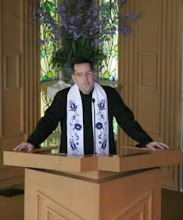Healing Music
My latest newsletter column.
On the evening of December 30, I sat in a darkened sanctuary. A few lights toward the pulpit turned the whole place into the color of toasted wheat. The wind outside howled. David Bowlin and his crew of merry-makers known as Chamber Music Quad Cities played magical music. I closed my eyes and let the sound wash over me. I was transported.
I’ve often said that, for me, music is akin to church. Music is exhilarating. Music is renewing. Music can make me weep. Music gives me hope.
Music hits a place deep in my bones.
But there was something more on the 30th. I sat there in gratitude for my family. We have had a very good year. I sat there with the difficulties of the church year heavy on my mind. I sat there with the many blessings of the church year accompanying me. I have seen many of you in life’s most significant moments—celebrating new babies with some of you; planning memorial services with others of you; listening deeply about life’s losses and making a way when there seems to be no way. Sometimes I sat with you in less dramatic but still important times: planning worship services; exploring ideas around religion and life in the board room. There has been laughter this year. And there have been growing edges and growing pains that have been frankly quite difficult.
Life in community, with its blessings and its speed bumps.
I sat there in the sanctuary, listening to piano and violin and cello. And I for a moment felt whole. I experienced a bit of the healing power of music. The musicians were vessels, absorbed in their own process, absorbed in the mixture of giving and receiving that is at the heart of the creative endeavor.
They were vessels of powerful grace, each in the sanctuary full of their own worries, full of their own concerns, full of their own gratitudes. Each open, as they were able, to the possibilities. Each open as the child on Christmas morn—Santa’s been here! What will happen next? Each open as the birder glimpsing the first eagle of the season. What majesty. What power.
Last Sunday in church, we talked about Anna the prophet in the story in the gospel of Luke who glimpses something holy upon seeing this Jesus, 8 days old in the temple. She was a widow. She was old. She was poor. She was not terribly ambitious. But she prayed and she fasted and she had eyes to see. For the Unitarian Universalist reading that story, the invitation is to reflect upon the question: What can I do to put myself in a position to have eyes to see the holy, the miraculous, all around? How shall I put my experience through the purifying heat of the fire of thought so that I am immersed in an understanding of my life as a part of the great story of the unfolding, evolving universe and its story, holy and powerful?
What is possible? What will happen next? What majesty! And I and my little concerns all wrapped up in the unfolding life of the holy earth. Life in community, with its blessings and bumps and bruises.
Choose to bless the world in 2009, no matter what! May you be blessed and be a blessing!
Roger
Labels: chamber music quad cities, healing music, music as grace, unitarian church davenport

